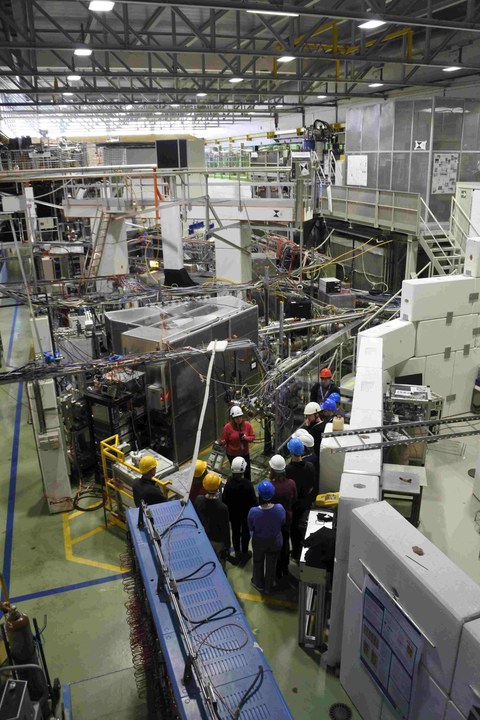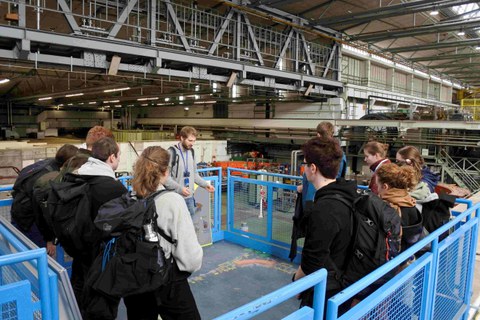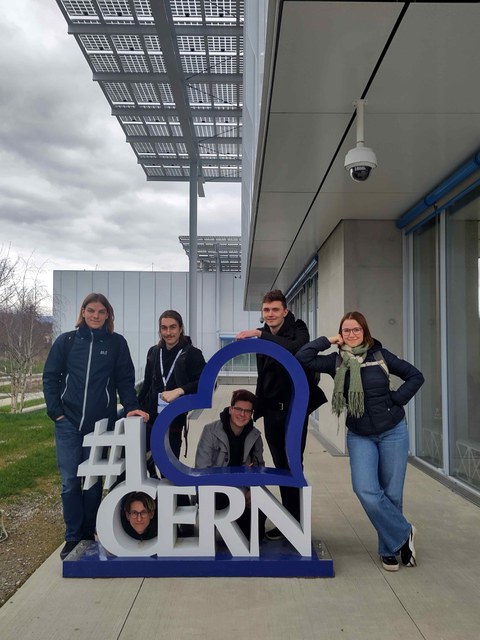Apr 29, 2024
CERN trip 2024
Leave the lecture hall and immerse yourself in the world of research: At the end of March, 47 physics students of TUD went on an excursion to CERN, the European Center for Particle Physics. For two days, they explored various experiments, observed scientists at work and gathered authentic impressions of research. This excursion, organized by the Institute of Nuclear and Particle Physics, was a highlight for the Bachelor students who attend the corresponding lecture in the 5th semester and interested non-subject students.
CERN is the largest research center for particle physics in the world and is home to the most powerful particle accelerator, the Large Hadron Collider (LHC). In the 27-kilometer-long underground ring, protons accelerate to almost the speed of light and collide with each other. These collisions provide insights into the smallest building blocks of matter and their interactions.

Geleitete Gruppe in der ISOLDE-Halle, in der in verschiedenen Experimenten radioaktive Isotope untersucht werden.
The students from Dresden were given fascinating insights in the visitor center of the ATLAS experiment, which is directly connected to the detector's control room. They were able to follow the status of the detector on numerous screens and observe individual collisions. Researchers from the Institute of Nuclear and Particle Physics (IKTP) are also involved in operating the ATLAS detector and analyzing the data.
Another highlight was the visit to the data center with its impressive computer infrastructure. All data streams are bundled here and 10,000 servers run around the clock. The students also had the opportunity to visit some antimatter experiments and explore the CERN Neutrino Platform. Huge neutrino detectors are being built and tested there, which, once completed, will investigate the question of why there is no antimatter in our universe, among other things.
The IKTP usually offers the CERN trip once a year. Excursion leader Dr. Frank Siegert from the IKTP emphasizes: "Because the particle physics experiments are too large to be demonstrated in the lecture hall, we give our students the opportunity to see experimental particle physics live and on site."
The students were accompanied through the facilities in small groups by members of staff. The guides were able to answer in-depth questions, but also give a real insight into jobs at CERN and present opportunities for networking and contact.
Thanks to the generous support of the Student Council, the Society of Friends and Supporters of the TUD e.V. and the Faculty Student Council Physics, the students' own financial contribution could be kept low.

TUD-Studierende am LEIR (Low Energy Ion Ring).

